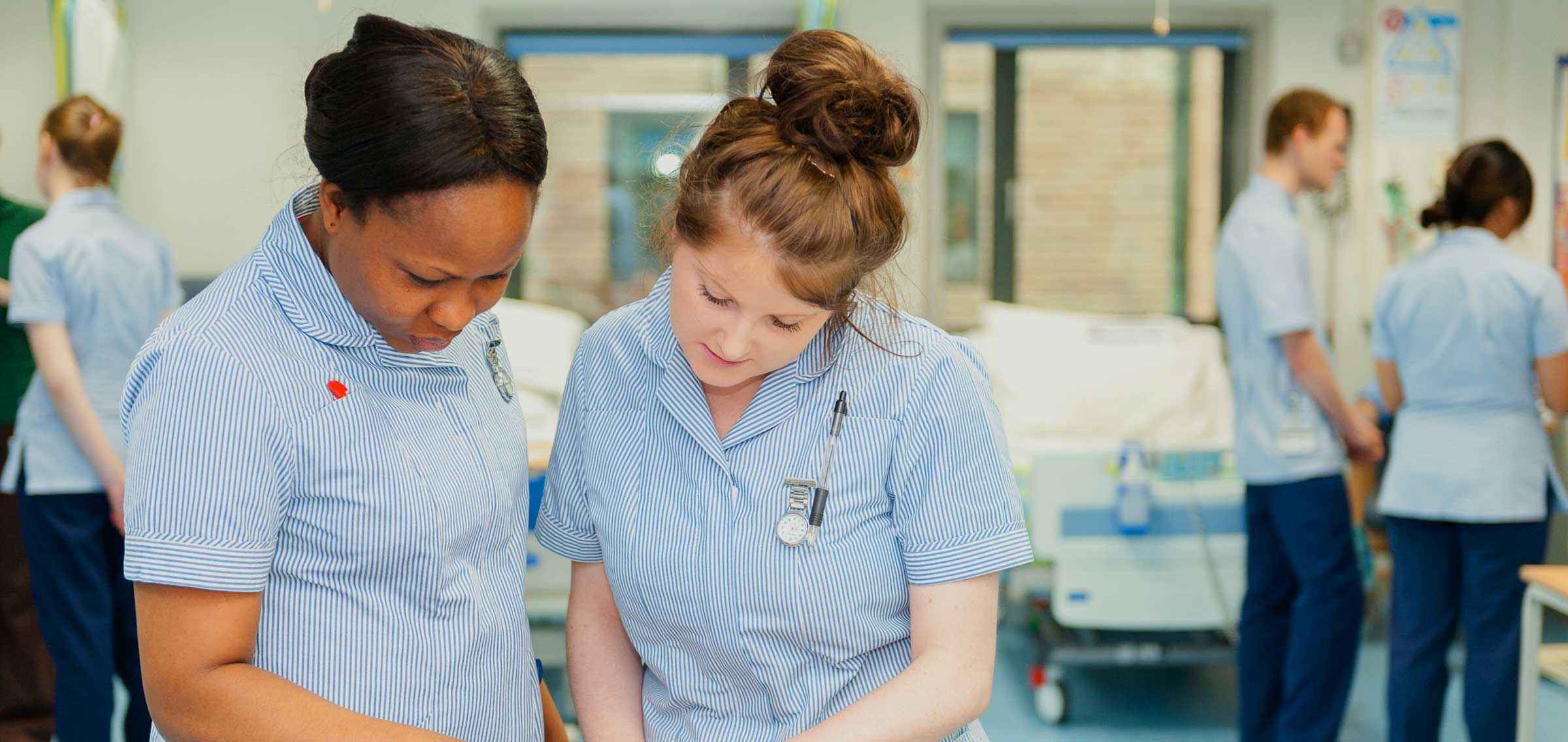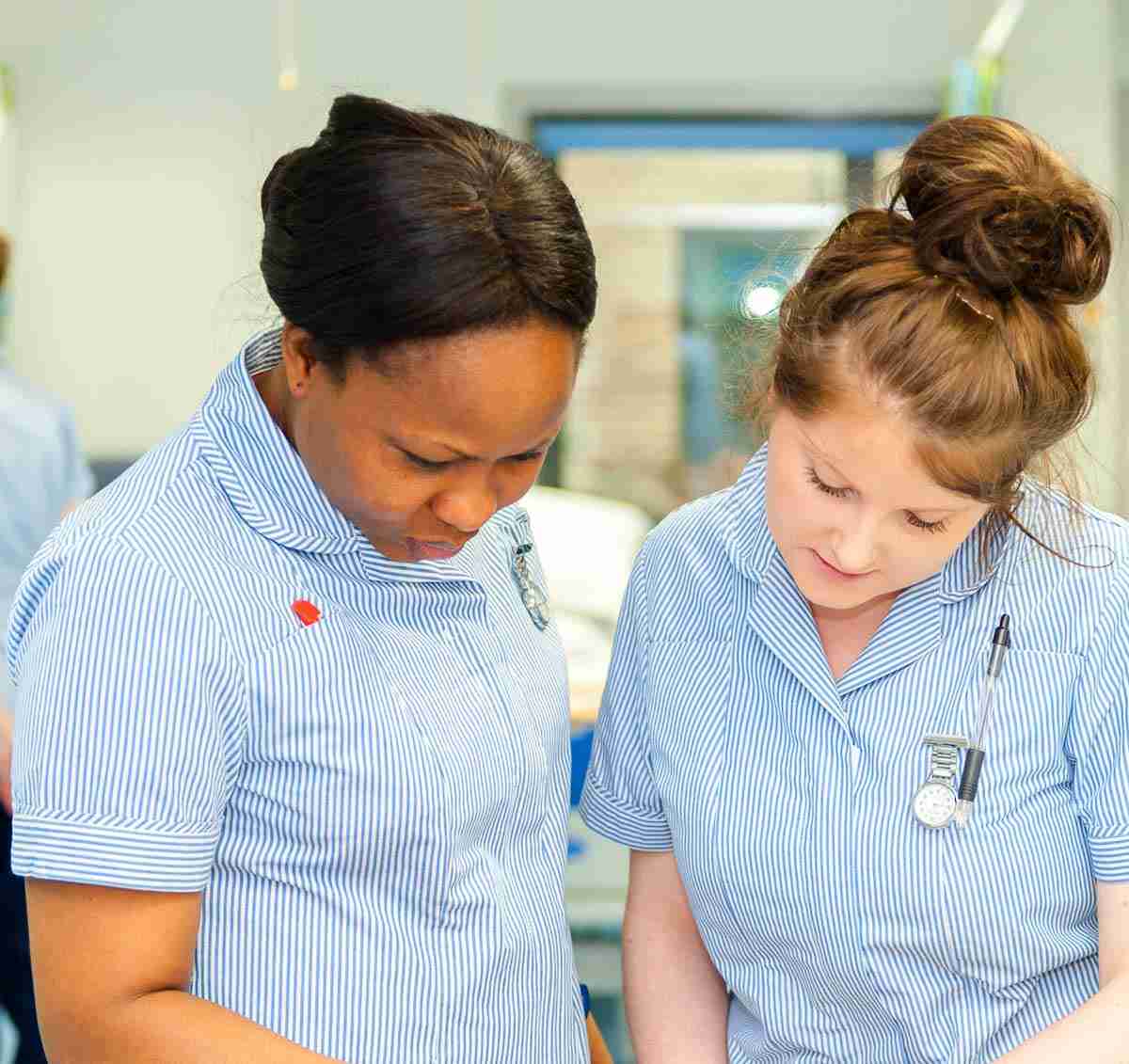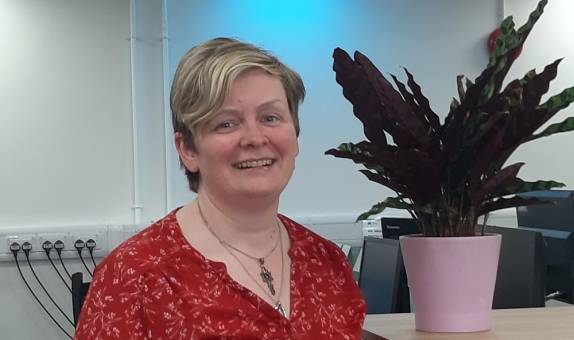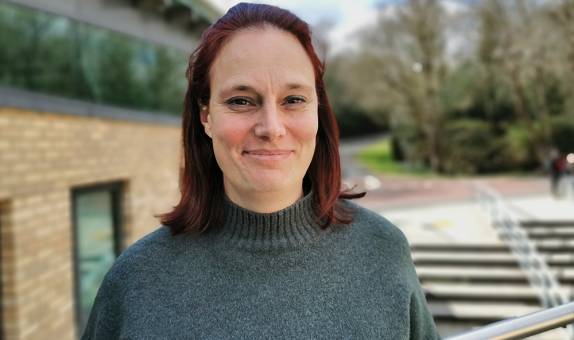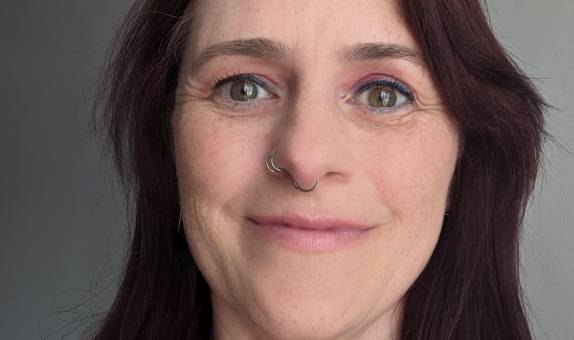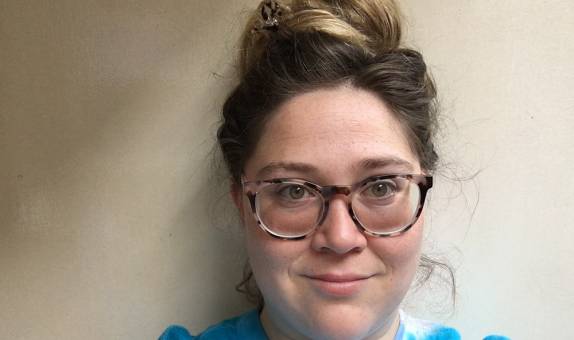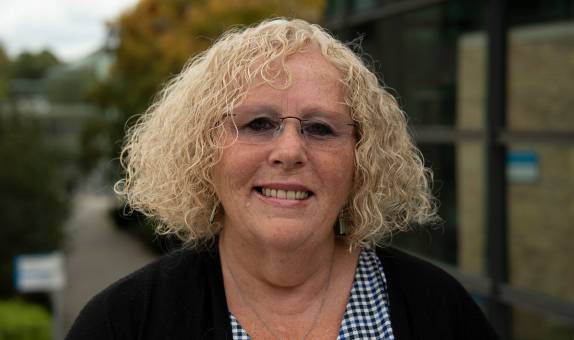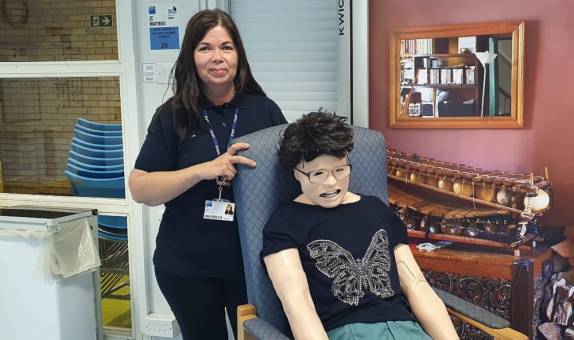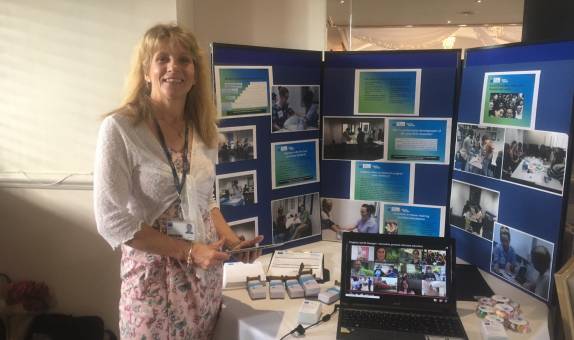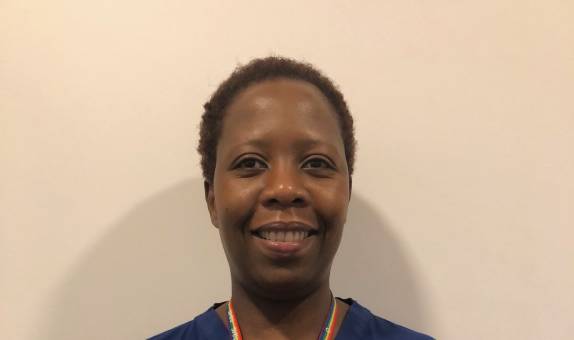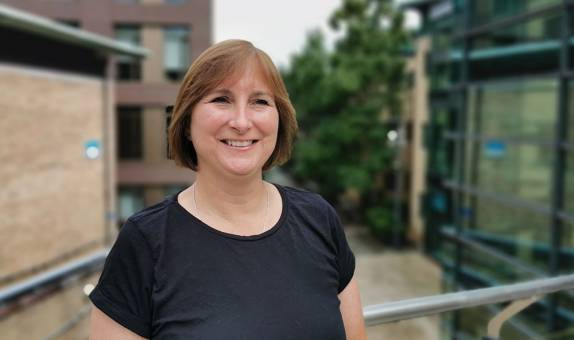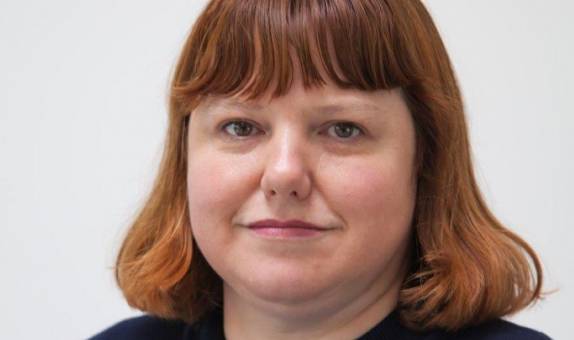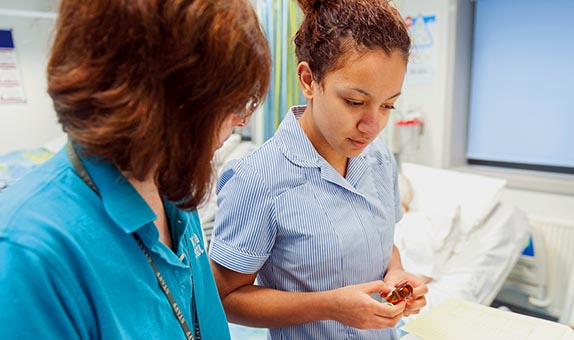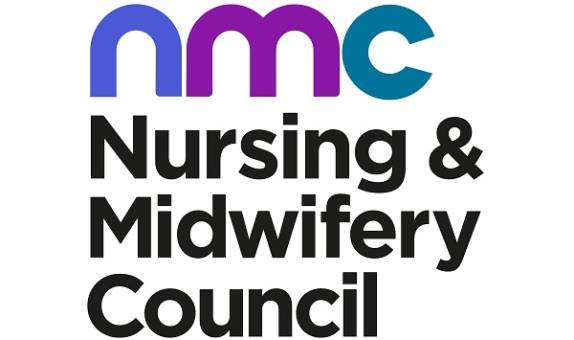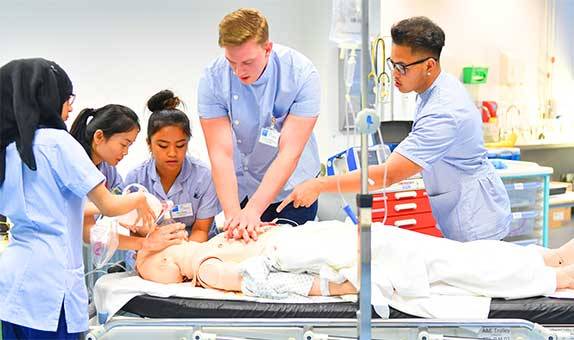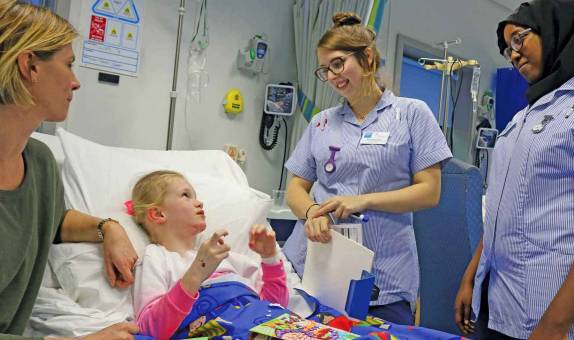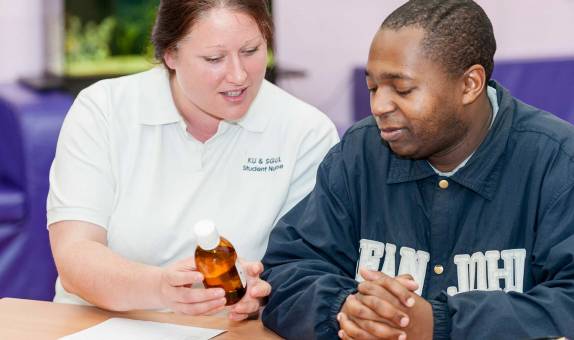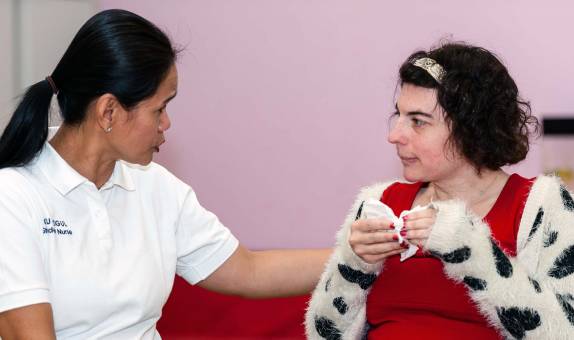Nursing Associate FdSc
Why choose this course?
As a nursing associate, you'll deliver hands-on care to patients. You'll work alongside healthcare support workers (holding a care certificate) and fully qualified registered nurses, bridging the existing gap between the two roles.
Through a combination of theoretical learning and practice placements, you'll develop a wide range of specialist and transferable clinical, care and interpersonal skills across all four fields of nursing. Practice placements will also give you the opportunity to gain a wide range of experiences through exposure to different health and care settings.
Nursing associates will be a key part of the multidisciplinary workforce that's needed to respond to the future needs of the public and patient.
You will attend study days and undertake guided learning. Through a combination of theoretical learning and practice placements you will develop a wide range of specialist and transferable clinical, care and interpersonal skills (including medicines management). You will learn a variety of clinical skills through simulation and experiences in a range of healthcare environments, including hospital wards and community setting. You will work with a range of people with different healthcare needs including mental health and learning disability across their lifespan as well as their carers, practice supervisors/assessors and other healthcare professionals.
Successful completion of the course will equip you to work as a Nursing Associate and to progress your career within the health and social care sector. You may be able to progress to a shortened nursing degree course.
| Attendance | UCAS code | Year of entry |
|---|---|---|
| 2 years full time | B745 | 2024 (Clearing) 2025 |
Please note: Teaching on this course may take place on more than one KU campus.
| Main Location | Kingston Hill |
Apprenticeship option
This course is also available as an apprenticeship.
Reasons to choose Kingston University
- This course will enable you to register with the Nursing and Midwifery Council as a Nursing Associate.
- We are top in London for General Nursing, and No.3 in the UK overall (The Guardian University Guide 2024).
- You'll develop a range of specialist and transferable skills (including medicines management) through clinical placements in a variety of settings.
- You'll have the opportunity to gain knowledge and experience in the fields of adult, child, mental health and learning disabilities.
- We were named Nursing Associate Training Programme Provider of the Year at the 2024 Student Nursing Times Awards, and also won Nursing Associate Learner of the Year. In 2023, we also won two Student Nursing Times Awards, including Nursing Associate Trainee of the Year.
What you will study
This programme is designed to meet the NMC requirements for Nursing Associates. You will be supported to achieve the competencies, communication, relationship management skills and nursing procedures specified in the Standards of Proficiency for Nursing Associates (NMC 2018).
Year 1
Year 2
Year 1 develops a broad understanding of the nursing associate knowledge base and enables the student to provide reasoned explanations of relevant issues.
Core modules
Personal and Professional Development 1
15 credits
This module addresses professional and personal development and runs throughout Year 1. It integrates and applies skills, knowledge and values acquired in other modules and provides academic skills support and development for students throughout their first year of study. The principles and skills of reflection are introduced and practised. The module also addresses wider issues known to influence successful study outcomes, such as wellbeing, resilience and support networks.
Applied Anatomy and Physiology
30 credits
This module explores the foundations of human anatomy, physiology and pathophysiology relevant to healthcare practice. The content covers the body's key systems and processes, the mechanisms for maintaining homeostasis and an introduction to human development across the lifespan. The module also introduces selected pathophysiology associated with common disease processes in order to assist students contextualise their learning to their clinical settings.
Skills for Healthcare Practice 1
30 credits
This module will enable the student to develop and apply a range of skills to the holistic assessment and monitoring of people within their care, documenting progress and reporting outcomes. Students will be introduced to the required skills and underpinning knowledge so that they can contribute to the ongoing assessment and recognise when it is necessary to escalate findings to other members of the multidisciplinary team for reassessment.
Professionalism in Practice
15 credits
This module explores the application of the NMC Code (NMC, 2018) and the professional principles, values and skills required to safeguard vulnerable people, optimise the quality of care and enhance the experience of people accessing health and social care. The content explores the domains of ‘prioritising people', ‘practising effectively', ‘preserving safety' and ‘promoting professionalism and trust', as applied to a range of user groups.
Promoting Health and Wellbeing
30 credits
This module will set healthcare in its wider social context, providing participants with an understanding of the various influences on health outcomes and inequalities, the relationship between mental and physical health, and their roles in promoting wellbeing. Effective communication skills for supporting people to manage their health and care will be explored.
Year 2 promotes a more detailed understanding of the subject matter covered in Year 1, related theories and concepts, enabling students to provide substantiated arguments applied to relevant issues.
Core modules
Personal and Professional Development 2
15 credits
The module will continue the development and consolidation of students' academic practice skills and will support their professional growth as they transition to Registered Nursing Associates. The range of learning, teaching and assessment activities undertaken in the module will allow students to demonstrate acquisition of reflective practice and lifelong learning skills, together with the knowledge and insights necessary for professional practice. The module also covers career development, employability skills and job-seeking preparation.
Skills for Healthcare Practice 2
30 credits
This module builds on the Year 1 module: Skills for Healthcare Practice 1. The module will enhance students' knowledge of the different approaches used to assess and promote a person's health and wellbeing, and to identify those who are at risk. Students will continue to develop the knowledge and core skills required for safe, effective assessment and care management within the practice setting.
The Acutely Unwell Person
30 credits
This module enables students to develop the knowledge and skills necessary to deliver safe, effective, compassionate, evidence-based, person-centred care when a person's condition is deteriorating. The module builds on students' knowledge of anatomy and physiology. It will equip them to recognise people who are at risk of deteriorating mental and physical health, undertake timely structured assessments, provide appropriate interventions and care across the lifespan and in a variety of settings.
Long Term Conditions
30 credits
This module will introduce students to the principles of working with people across the lifespan who live with complex and/or long-term conditions (LTC's) in primary and/or secondary care settings.
Leadership for Nursing Associates
15 credits
This module is aimed at final semester nursing associate students. It focuses on the acquisition of knowledge and skills for promoting the delivery of high-quality person-focused care. The content will include: leadership and management; supporting learning and assessment in practice; research, development and innovation; policies and frameworks that support effective care.
Future Skills
Knowledge to give you the edge
Embedded within every course curriculum and throughout the whole Kingston experience, Future Skills will play a role in shaping you to become a future-proof graduate, providing you with the skills most valued by employers such as problem-solving, digital competency, and adaptability.
As you progress through your degree, you'll learn to navigate, explore and apply these graduate skills, learning to demonstrate and articulate to employers how future skills give you the edge.
At Kingston University, we're not just keeping up with change, we're creating it.

Entry requirements
If you would like to join us through Clearing 2024, please call our Clearing line on 0800 0483 334 (or +44 020 8328 1149 if you are calling from outside the UK) and speak to our friendly and knowledgeable hotliners who will be able to provide information on available courses and will guide you through your options.
Please note the entry requirements listed below are for 2025 entry only.
Teaching and assessment
Scheduled learning and teaching on this course includes timetabled activities including lectures, seminars and small group tutorials.
It may also include placements, project work, practical sessions, workshops, conferences and field trips.
Who teaches this course?
Additional costs
Depending on the programme of study, there may be extra costs that are not covered by tuition fees which students will need to consider when planning their studies. Tuition fees cover the cost of your teaching, assessment and operating University facilities such as the library, access to shared IT equipment and other support services. Accommodation and living costs are not included in our fees.
Where a course has additional expenses, we make every effort to highlight them. These may include optional field trips, materials (e.g. art, design, engineering), security checks such as DBS, uniforms, specialist clothing or professional memberships.
Accreditation
This degree confers both an academic award and a professional qualification in nursing. On completion of the programme, students are recommended to the Nursing and Midwifery Council for professional registration.
After you graduate
This course will prepare you to work as a nursing associate and enhance your career in the health and social care sector. You may be able to progress to a shortened nursing degree course.
Visit NHS Careers for more information about the role of Nursing Associates working in the NHS.
What our students say
Key information set
The scrolling banner(s) below display some key factual data about this course (including different course combinations or delivery modes of this course where relevant).
Course changes and regulations
The information on this page reflects the currently intended course structure and module details. To improve your student experience and the quality of your degree, we may review and change the material information of this course. Course changes explained.
Programme Specifications for the course are published ahead of each academic year.
Regulations governing this course can be found on our website.
